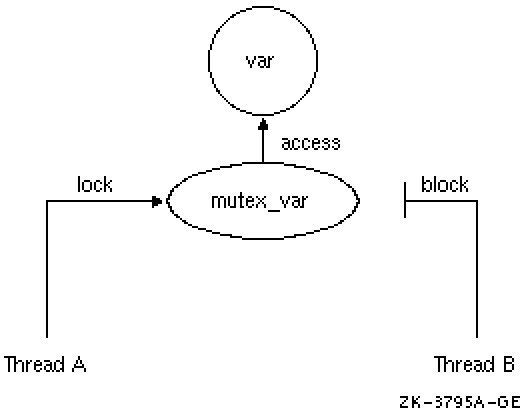A mutex (mutual exclusion object) is used by multiple threads to ensure the integrity of a shared resource that they access, most commonly shared data, by allowing only one thread to access it at a time. A mutex has two states, locked and unlocked. For each piece of shared data, all threads accessing that data must use the same mutex: each thread locks the mutex before it accesses the shared data and unlocks the mutex when it is finished accessing that data. If the mutex is locked by another thread, the thread requesting the lock either waits for the mutex to be unlocked or returns, depending on the lock routine called (see Figure 2-1).

Each mutex must be initialized before use. DECthreads supports
static initialization at compile time, using one of the macros
provided in